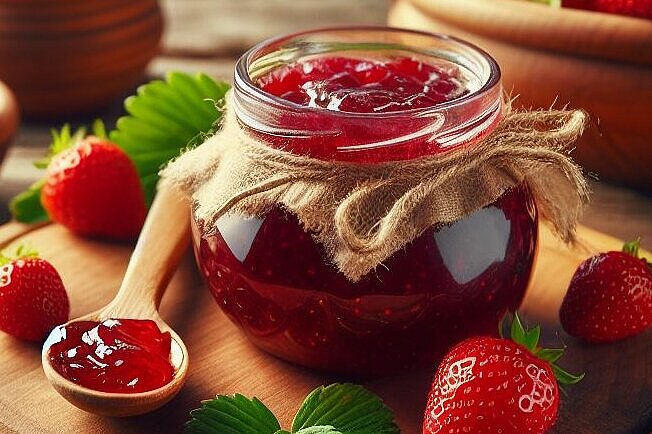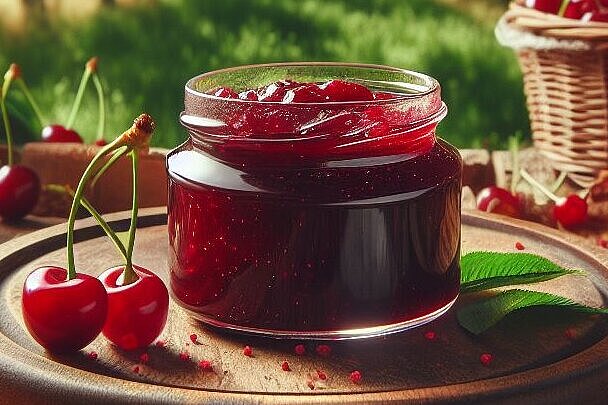Raspberry jam

The sweet temptation: benefits of raspberry jam
A taste that dogs love
Raspberry jam offers a sweet and fruity flavor that appeals to many dogs and can serve as a special treat.
Antioxidant ingredients
Due to the use of raspberries, raspberry jam contains antioxidants such as vitamin C and manganese, which can help neutralize free radicals.
Energy source
The high sugar content in raspberry jam can be a quick source of energy for particularly active or competitive dogs.
The other side of the coin: disadvantages and risks
High sugar content
The main disadvantage of raspberry jam is its extremely high sugar content. Too much sugar can lead to obesity, diabetes and other metabolic disorders in dogs.
Lack of nutrients
Aside from antioxidants, raspberry jam provides little to no essential nutrients necessary for a balanced diet for dogs.
Potential allergens
Raspberry jam may contain ingredients that trigger allergies or intolerances in some dogs, including the raspberries themselves or added preservatives.
Dental problems
The sticky, sugar-rich spread can stick to teeth and contribute to the development of dental problems, including tooth decay and tartar.
To be enjoyed with caution
While the idea of giving your dog a treat with a spoonful of raspberry jam may be tempting, it's important to consider the potential risks. Your dog's health should always come first, and nutrition plays a crucial role in this. If you want to give your dog a sweet treat, there are healthier alternatives, such as fresh raspberries in moderation or treats specially designed for dogs with no added sugar. Ultimately, it is advisable to be extremely cautious when feeding raspberry jam and only offer it in very small quantities, if at all, as an occasional treat. A balanced diet tailored to your dog's specific needs will always be the best choice to promote their health and well-being.
If you notice any signs of hypersensitivity or poisoning in your dog, you should see your vet immediately. We are not a substitute for a vet, but we try to be as accurate as possible. Every dog reacts differently and we recommend you get a second opinion or consult your vet if in doubt.
Stay healthy and take good care of your four-legged friend!😊
Similar to Raspberry jam
Apricot jam is a jam made from fresh or dried apricots. Apricots are stone fruits that belong to the rose family. They have a yellow-orange color, a sweet and sour aroma and a soft stone. Apricots...
Strawberry jam is a jam made from cooked strawberries, gelling sugar and lemon juice. Gelling sugar is a special sugar that contains pectin and citric acid. Pectin is a vegetable gelling agent...
Cherry jam is a fruit spread made from fresh or frozen cherries, gelling sugar and lemon juice. The cherries are pitted, mixed with the sugar and lemon juice and left to infuse for a few hours. They...
Plum jam can have a number of health benefits for dogs if fed in moderation. On the one hand, it can support the intestinal flora and prevent constipation as it contains a lot of fiber. Secondly, it...



